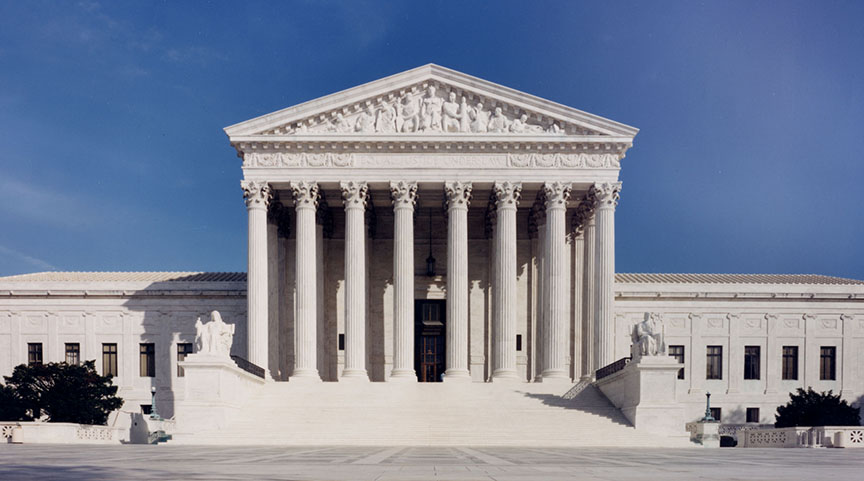Pro-life advocates across the nation cheered the U.S. Supreme Court’s recent decision to allow a Texas law banning abortion after six weeks to stand. While the unusual law will undoubtedly face additional legal challenges in the coming weeks and months, it has reduced the number of abortions performed in the nation’s second-largest state significantly for now.
Legal analysts and advocates on both sides of the issue are working overtime to discern what – if anything – this decision means in the greater abortion battle. The Texas law, known as Senate Bill 8, is unique in that it makes everyday citizens the enforcement mechanism for the regulation via civil litigation. That was an intentional and strategic decision on the part of Texas lawmakers, and it seems to have worked to thwart the more common legal challenges to pro-life bills, as least for now.
However, most experts agree that the more substantive judicial decision comes later this year when the Court hears arguments on a case known as Dobbs v. Jackson Women’s Health. The Dobbs case, dealing with a Mississippi law banning elective abortion after 15 weeks, addresses more directly the essential questions surrounding abortion in the U.S. In taking up Dobbs, the Court could overturn Roe v. Wade. It could also render a decision that alters the viability standard established by Planned Parenthood v. Casey, which protects the legal right to abortion before the usual age of viability for most pre-born infants, which is around 24 weeks.
Either way, the legal landscape around the issue of life is changing and may change even more in the coming months.
As Southern Baptists, we have long been committed to protecting the unborn based on the biblical truth that all people, regardless of age, are created in the image of God. We rejoice to think of the lives that these legal changes may save. But changes to federal laws do not mean that our work to promote a culture of life is finished. It merely signals that the venues and strategies change.
For instance, in states with conservative state legislatures, a Supreme Court decision that overturns Roe would clear a path to eliminate or significantly restrict legal abortion. But states with more aggressively left-leaning legislatures (think New York) may respond by expanding abortion rights, becoming a sort of safe haven for abortion seekers.
“Changes to federal laws do not mean that our work to promote a culture of life is finished. It merely signals that the venues and strategies change.”
Dana Hall McCain
What might the church’s new mission look like in a conservative state where abortion is significantly restricted or banned? We will have an opportunity to demonstrate our commitment to valuing life and loving our neighbors by meeting the needs of women facing unplanned pregnancies and their children once born.
Abortion-vulnerable women often face numerous challenges: poverty, lack of family/partner support, housing insecurity, etc. Those circumstances won’t be any less difficult when abortion is illegal in her state, and she carries to term a baby she might have otherwise aborted. Additionally, more children born to mothers in distress will increase the need for families willing to foster or adopt.
There will be a tremendous opportunity for the church to meet women and children in their moment of crisis, offering practical help and the hope of the gospel, loving both as Christ commands. Our commitment to human flourishing must not stop at the hospital delivery room door.
Conversely, in states with more aggressively left-leaning legislatures, we may see an expansion of abortion rights in response to a new landmark federal decision. These states might feel compelled to “double down” on their commitment to legal abortion, attracting abortion-seeking women from other states.
“Our commitment to human flourishing must not stop at the hospital delivery room.”
Dana Hall McCain
In these states, our mission may require an even greater effort to offer messaging and services that make women aware of other options like parenting and adoption. Where pro-life advocacy doesn’t have state government support, saving lives will require appealing to individuals in a way that changes hearts and minds.
We rejoice that God is creating pathways for legal changes that may save millions of precious lives in the years to come. Let’s pray that He will also equip us to minister to women and children in ways that communicate His great love for us, and lead each mother and child to new life in Christ, as well.
(EDITOR’S NOTE – Dana Hall McCain writes about faith, culture, and public policy for AL.com, the Birmingham News, The Huntsville Times and the Mobile Press-Register. She is a member of First Baptist Church of Dothan, Ala., and served on the 2021 SBC Committee on Resolutions.)


